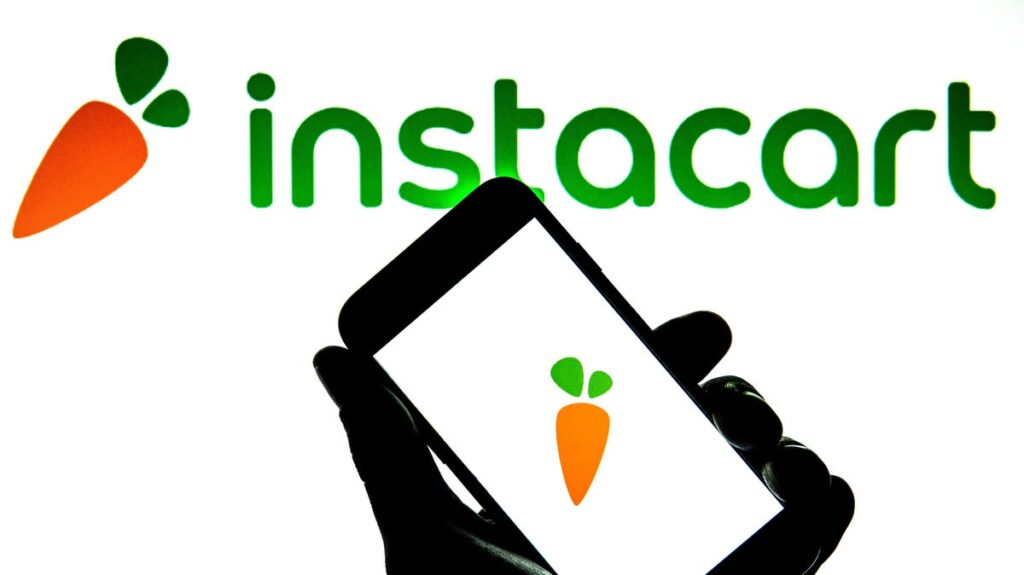Grocery technology company Instacart filed paperwork with the United States Securities and Exchange Commission last month, expressing its plans to become a publicly traded company through an IPO, which is planned for later this month. The company has swiftly risen to become a consumer favorite in the grocery and goods delivery business.
Instacart was founded nearly a decade ago, and has since transformed delivery services. Today, the company touts that it has partnered with 1,400 national, regional, and local retail banners across more than 80,000 stores, which is representative of nearly 85% of the U.S. grocery industry. This infrastructure, reach, and brand loyalty is incredible, as millions of consumers use Instacart daily.
The company also recognizes that with this infrastructure, there is an opportunity to improve healthcare outcomes, and has slowly started to invest more of its time and resources in this sector. Notably, Instacart’s collaboration with Partnership for a Healthier America (PHA), a non-profit that is dedicated to improving health equity, has had tremendous results. The organizations partnered to support the “Good Food for All” program in Indianapolis, providing families with pre-packaged boxes of fresh fruits and vegetables weekly, and during a second phase, providing families with produce credits per month. Importantly, the produce credits could be redeemed at brick-and-mortar stores or through Instacart’s Fresh Funds platform.
Instacart described that the impact of the program has been substantial, indicating that produce credits enabled significant improvements in food security for families. Specifically, 79% of families that received produce credits reported that they planned to continue to eat more fruits and vegetables; furthermore, participants that used Instacart’s Fresh Funds platform rather than redeeming their credits at brick-and-mortar stores indicated significantly higher satisfaction with the program, and were 10 times more likely to actually use all of their funds.
Dani Dudeck, Chief Corporate Affairs Officer at Instacart, describes the vision behind the program: “Everyone should have access to nutritious food, and technology can break down barriers that have historically prevented too many communities from getting the nourishment they need. This belief is central to our Instacart Health initiative and company mission, and we’re proud that more than 95% of U.S. households – including 93% of people living in food deserts – have access to fresh produce via Instacart.”
Additionally, Noreen Springstead, President & CEO of Partnership for a Healthier America, describes that the work being done with Instacart has incredible potential to achieve health equity and incrase food accessibility and affordability for communities nationwide.
Accordingly, the organizations announced in the press release that they would be expanding their partnership to provide the Fresh Funds service to four additional cities: Denver, Colorado; Englewood, New Jersey; Milwaukee, Wisconsin; and Washington D.C..
CLARK, NEW JERSEY – APRIL 27: Instacart experienced a massive surge in customer demand and … [+]
Instacart has also announced partnerships with numerous other healthcare powerhouses such as Boston Children’s Hospital, the Stanford Cancer Center, UCSF, and Mount Sinai, among others, to explore ways to improve food and nutrition security, help providers better serve patients with specific dietary needs, and help patients and communities improve better healthcare outcomes.
Indeed, food and nutrition security have been noted to be among the most important aspects of achieving better healthcare outcomes. The U.S. Department of Agriculture notes that “poor nutrition is a leading cause of illness in the United States, associated with more than half a million deaths per year. It is linked with increased risk of obesity, diabetes, and heart disease as well as broader impacts including higher health care costs and decreased productivity.”
With increasing food prices, lack of equitable access to nutritious food, and a significant increase in food deserts around the world, overall global healthcare outcomes have been impacted. The World Health Organization reports that “from 1975 to 2016, the prevalence of overweight or obese children and adolescents aged 5–19 years increased more than four-fold from 4% to 18% globally.” With this rise in obesity, there has also been a rapid increase in comorbidities and chronic illnesess, such as diabetes, hypertension, and heart failure.
Instacart, which has invested significant time, money, and resources to develop an incredibly powerful infrastructure and network, has incredible potential to change healthcare at the grassroots and community levels. As it continues to grow, the company can likely use this infrastructure to positively impact millions of people daily—whether it be through increasing access to healthier foods, or by creating innovative ways to bridge providers with patients. Undoubtedly, one thing is certain—with regards to healthcare, Instacart is just getting started.


